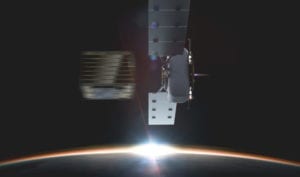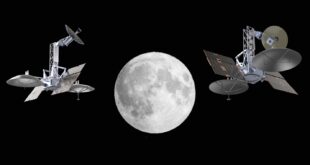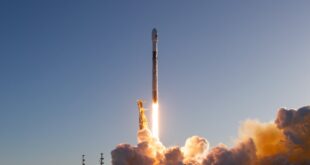
Momentus, provider of in-space transportation services for satellites, and OrbAstro, a UK company focused on developing the technology to enable tiny satellites to operate in large flocks, announced on 4 June 2020 a launch contract to fly a 3U to SSO onboard the SpaceX Dedicated rideshare mission in 2021.
This in-orbit demonstration mission on a 3U OrbAstro platform will host a variety of payloads:
- An Ultrascale+ based onboard computer, 10X more powerful than the current state-of- the-art in Zynq 7030 based systems, coupled to an Artificial Neural Network based constellation management system
- An Electrical Power System with a novel battery chemistry, allowing typically a 5X increase in mission lifetime compared to conventional Li-ion chemistries for a given volume and mass
- A compact ADCS allowing for fast steering and accurate pointing, tailored for precision formation-flight
- A new type of thermal management system, allowing kW-class payloads to operate on nanosatellite-class platforms at a compelling duty cycle
Smallsat flocking is relevant to existing and emerging markets in newspace. OrbAstro believes there is much needed room for improvement in constellation-level efficiency, so the new company is developing the onboard hardware and software to close the gap. The company is focused on launching its own flocks as well as innovating in hardware and software for space. “Following this IOD, we expect to launch a small cluster of formation-flying nanosatellites to de- risk all remaining technologies under development before scaling up to our constellation aspirations, said Dr. Ash Dove-Jay, Founder and CEO, OrbAstro. “Momentus strikes us as an ideal partner going forwards – their flexible approach, large launch manifest, and ability to transfer us to a nominal orbit is unmatched.”
“We are excited to see OrbAstro working on developing key technologies that could really enable flocks of satellites to be in close proximity to each other,” said Mikhail Kokorich, CEO of Momentus. “In the future, this may enable Momentus to do rendezvous and proximity ops for refueling, satellite servicing, repositioning and more.”





